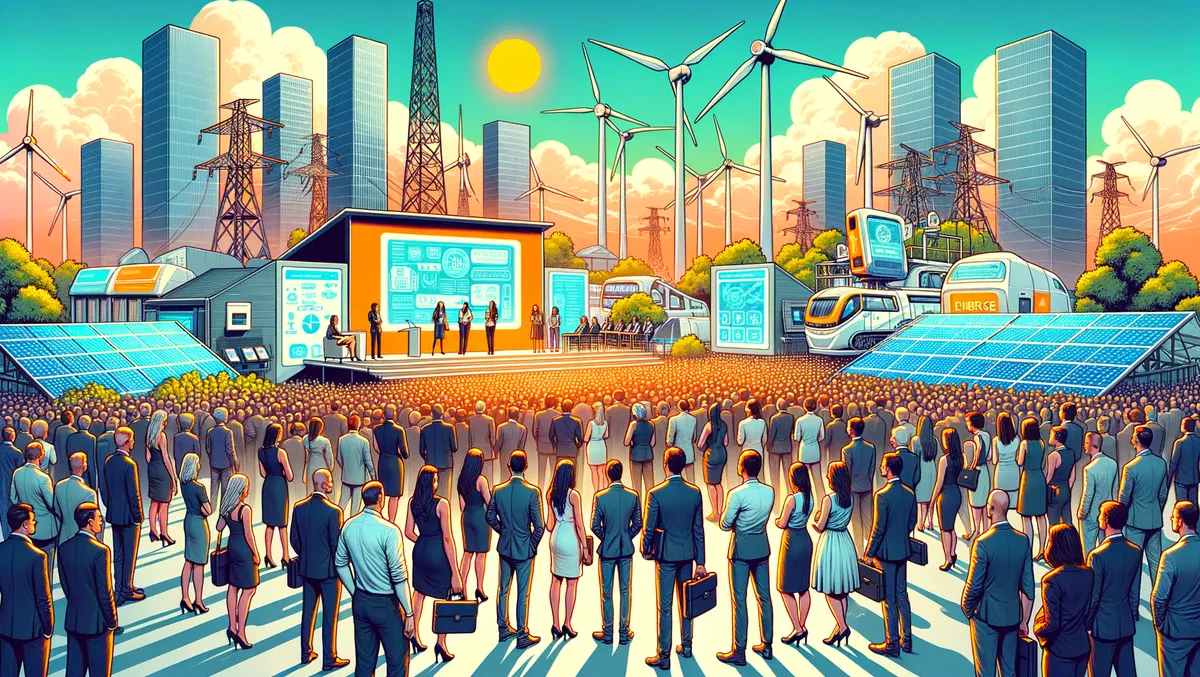
OpenADR Alliance unveils OpenADR 3.0 at ENLIT Europe event
The OpenADR Alliance, an international industry consortium devoted to promoting the development, adoption, and conformity of the OpenADR standard, has announced the release of a new standard, OpenADR 3.0. This announcement was made during the ENLIT Europe event recently held in Paris, France.
The fresh OpenADR 3.0 version is purposed to help utilities, operators, aggregators, and customers manage the rapidly growing range of distributed energy resources (DER) effectively. These resources include renewable energy sources, energy storage, electric vehicle (EV) batteries and charging infrastructure, as well as demand response resources like commercial buildings or homes.
The OpenADR is an open standard that provides a highly secure, fast, and reliable two-way information exchange for utility applications. It is valuable in situations requiring simple communications like dynamic price and event signals, enabling customers to modify their consumption patterns, thus helping them save money and reduce their carbon emissions.
The newly launched OpenADR 3.0 will enable equipment manufacturers to integrate new functionalities easily into customer products. These products include smart thermostats, electric vehicle charging stations, energy storage, and control systems.
Rolf Bienert, the Managing and Technical Director for the OpenADR Alliance, shares his thoughts on the initiative: "Renewable energy, along with battery storage, is becoming a significant share of overall power capacity as we transition towards a more sustainable energy future. As a result, energy companies are having to manage more decentralised and distributed energy resources, scaling operations while ensuring compatibility and interoperability."
Furthermore, OpenADR 3.0 ensures seamless communication between different devices and systems and between utilities and customers. It provides simplicity in times when technology is becoming more complex, making energy management easier while future-proofing energy systems.
Although OpenADR 2.0 is extensively used by many utilities and vendors, there are no plans to replace it. OpenADR 3.0 is designed to complement older versions of the standard, offering more dynamic pricing structures, improved greenhouse gas signalling, adjustments in grid code, and enhanced capacity management communication.
Bruce Nordman, a scientist at Lawrence Berkeley National Laboratory and part of the team that developed OpenADR 3.0, expressed his positive thoughts about the initiative: "OpenADR 3.0 opens up new possibilities for customers and their devices. It is so easy to implement that it can readily be incorporated into any customer device for receipt of grid signals, and also used for communication between customer devices."
Albert Chiu of Pacific Gas & Electrics also weighed in on the topic: "As renewable generation and electrification increase with more distributed energy resources, energy flexibility and load management become even more key. With the new and improved OpenADR 3.0, we expect an increase in the quantity and diversity of OpenADR certified products and solutions, making it easier for customers to participate in load management programs and dynamic rates. These activities are crucial for PG&E and CA to reach its carbon reduction goals in the future."
The OpenADR Alliance is encouraging the development of a global ecosystem of standards-based products through the OpenADR certification, eliminating the constraints of a single-vendor lock-in while ensuring interoperability. Members can soon apply for OpenADR 3.0 testing and certification. However, only products or systems that have passed through the OpenADR Alliance Certification Program can claim OpenADR certified status.
Several companies are currently running pilot trials with the new OpenADR 3.0 standard as shared by the OpenADR Alliance. Alongside this, it was also disclosed that the OpenADR Alliance attended the recent Enlit Europe 2023 in Paris, France together with several members and partners.
With a surge in energy consumption from renewable sources, 22.5% of energy consumed in the EU was produced from renewable sources last year as per recent estimates by the European Environment Agency (EEA). Also, over a third (35%) of the world's electricity is predicted to be sourced from renewables like solar and wind power by 2025, indicating the importance of reliable standards like OpenADR in managing the growth in renewable energy.


